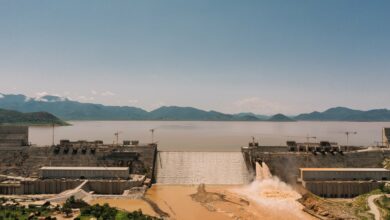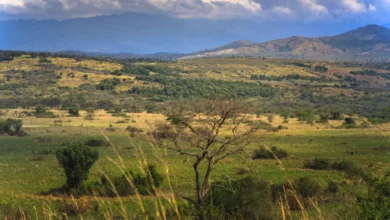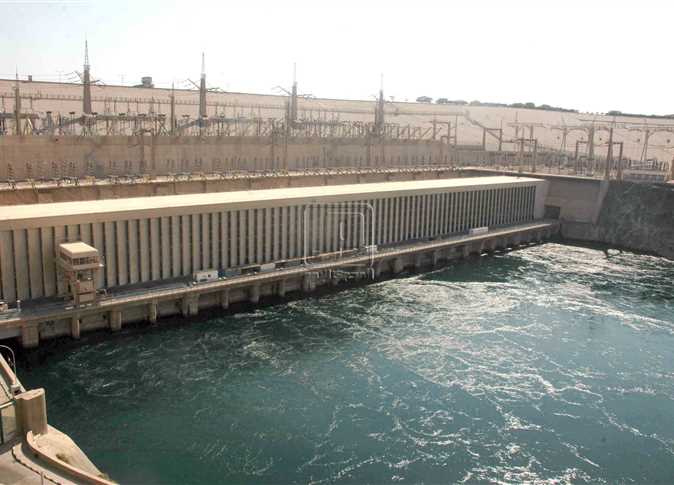Al-Ahram’s lead story states that Prime Minister Ahmed Nazif will present a proposal to parliament today calling for the abolition of the Emergency Law and restricting it over the next two years to combating terrorism and drug trafficking. A “new legal reality” will emerge if the proposal, considered a “new qualitative shift” in the law, is accepted and issued as a presidential decree, according to Al-Ahram. The new proposal will result in the “limiting, mitigating and the exclusion of a large number of operations and measures” associated with the Emergency Law.
Al-Ahram’s reports that Nazif’s proposal would prohibit using the Emergency Law to justify the surveillance of correspondence, disrupting the circulation of newspapers and publications, shutting down publishing houses or public shops, confiscating property or transported goods, or isolating and evacuating residential areas, among other measures. The report states that this new development in the application of the Emergency Law is “an essential step to achieve the desired balance between national security and citizens, and securing citizens’ rights and freedom.”
Rose el-Youssef leads with the headline “Almost complete abolition of the state of emergency” and notes in the story that government sources have stated they are still committed to issuing an Emergency Law, but the Prime Minister’s proposal would bring an end to the state of emergency. Rose el-Youssef’s article cites Gamal Mubarak, chairman of the ruling party’s powerful Policies Secretariat and widely speculated to be a presidential candidate, as saying that the committee that formulated the proposal is currently still deliberating on a few points that require further discussion. Furthermore, if the government were to reinstate the state of emergency for national security purposes, said Gamal Mubarak, the ruling National Democratic Party would seek assurances that it remains limited to its stated purpose.
Al-Shorouq’s lead story cites an anonymous “senior leadership figure” stating that the Nile Basin issue will have to be dealt with “from square one,” and that the situation would take at least five years to contain. Nile Basin countries are expected to sign a treaty–rejected by Egypt–next Friday, according to the article, which cites the anonymous saying that a “road map” has been outlined “to activate political, diplomatic and economic cooperation” between the countries in question over the next five years.
Al-Dostour’s coverage of the Nile Basin issue also cites national security expert Major General Sameh Seif el-Yazal as saying that Egypt was late in formulating a strategy for dealing with the Nile Basin issue because of shortages in the aid funding, whereas other Nile Basin countries, especially Ethiopia, received major financial support from European countries. El-Yazal is quoted as saying that an ongoing correspondence between the governments of Israel and Burundi and Uganda remains “worrisome for Egypt,” a clear indication that Israel is waging an “open war that can not be ignored” against Egypt.
Al-Akhbar’s lead headline states that “Ministerial cabinet approves 10% bonuses and increases in pensions.” The story notes that at a meeting yesterday, the ministerial cabinet approved Prime Minister Ahmed Nazif’s proposal to increase public sector workers’ wages by ten percent, with no minimum or maximum requirements, effective 30 June of this year. Al-Gomhurriya, which also leads with the bonuses story, states that the cabinet also approved Nazif’s proposal to increase military and civil pensions by the same percentage.
Egypt’s newspapers:
Al-Ahram: Daily, state-run, largest distribution in Egypt
Al-Akhbar: Daily, state-run, second to Al-Ahram in institutional size
Al-Gomhorriya: Daily, state-run
Rose el-Youssef: Daily, state-run, close to the National Democratic Party’s Policies Secretariat
Al-Dostour: Daily, privately owned
Al-Shorouq:Daily, privately owned
Al-Wafd: Daily, published by the liberal Wafd Party
Al-Arabi: Weekly, published by the Arab Nasserist party
Youm7: Weekly, privately owned
Sawt el-Umma: Weekly, privately owned




